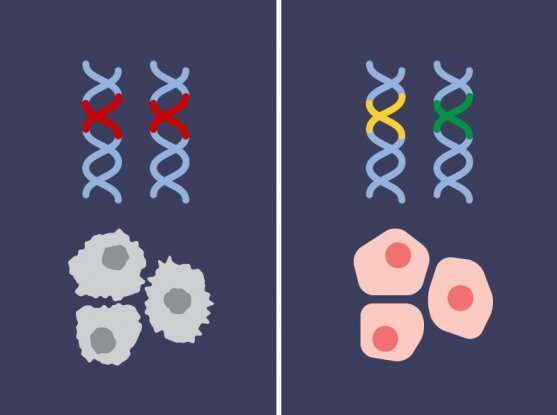
Genes that perform critical but mundane tasks within cells—such as generating energy or eliminating waste—haven’t traditionally been considered prime targets for cancer therapy. A new study led by Caitlin Nichols, Brenton Paolella, and associate member Rameen Beroukhim of the Broad Institute of MIT and Harvard and Dana-Farber Cancer Institute suggests they should be.
The study—published in Nature Communications, and relying in part on data from the Cancer Cell Line Encyclopedia, the Cancer Dependency Map project, The Cancer Genome Atlas (or TCGA), and the Exome Aggregation Consortium (now gnomAD) database, among others—identified more than 1,200 “essential genes” that could serve as targets for future therapies. Unlike cancer genes, whose malfunction causes cells to grow out of control, essential genes are normal genes that carry out the basic activities of cell life. Because cancer cells often have only one copy of these genes, whereas normal cells have two, drugs that target a single copy could be lethal to cancer cells while leaving normal cells fully functional.
In the video presentation below, Nichols describes the research that led to the identification of genes in which this vulnerability can be exploited. A drug targeting just one such vulnerability could benefit more than 18,000 patients with cancer in the US each year, she says.
https://youtube.com/watch?v=5FKh-F20elE%3Fcolor%3Dwhite
Source: Read Full Article
